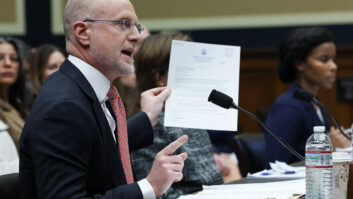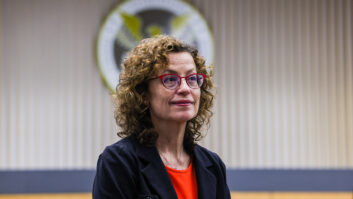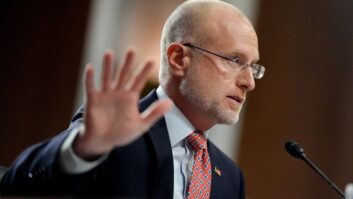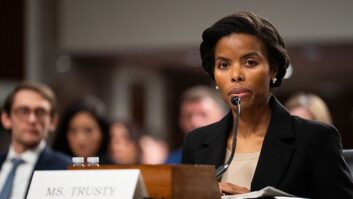On Thursday, the Senate Committee on Commerce, Science and Transportation held a congressional hearing to consider nominations for the Federal Communications Commission. The commission has been at a 2-2 political standstill since 2021, or, as one senator pointed out, a whopping 882 days.
Washington Sen. Maria Cantwell, the Democratic chair of the committee, oversaw the hearing, which was streamed live and open to the public.
Nominees being considered for the open seat on the FCC include Anna Gomez, a senior advisor for international information and communications policy in the State Department’s Bureau of Cyberspace and Digital Policy; incumbent Brendan Carr, one of the two Republicans on the FCC, serving since 2017; and incumbent Geoffrey Starks, who has served on the commission since 2019. The Senate committee also is considering Fara Damelin to be the commission’s Inspector General.
Cantwell opened the hearing point-blank with the remark: “Ms. Gomez is one of the most qualified nominees for the FCC commissioner [that has ever come] before our committee.” Putting her full support behind the telecommunications attorney, Cantwell went on to note Gomez’s 25-plus years of experience in the public service sector, her leadership in preparing for the 2023 World Radiocommunications Conference and her would-be distinction as the first Latina to serve on the commission in decades.
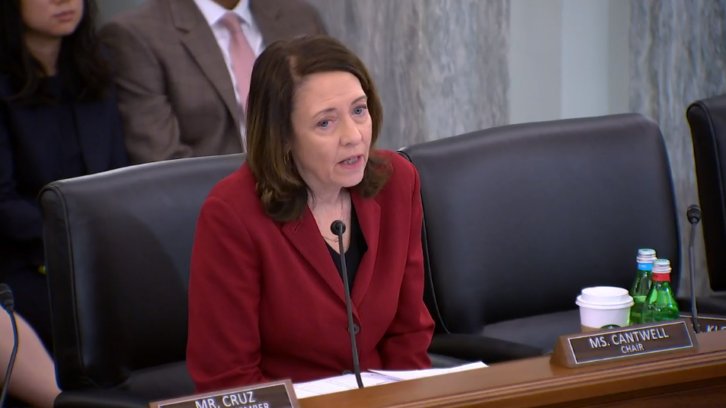
President Biden’s nomination of Gomez in May followed the failed nomination of Gigi Sohn, who pulled her name from consideration for a seat following bitter partisan debate.
In her personal testimony addressing the gathered senators, Gomez said, “I believe the FCC does best when its work honors the needs of the people it serves. That means connecting everyone everywhere to affordable, reliable internet. This also means ensuring our first responders can communicate in times of crisis. My years of working with public safety have given me an appreciation of their unique — and vital — communications needs.”
New Mexico Sen. Ben Ray Luján, a Democrat, was one of the senators of note who expressed explicit support of Gomez, saying she is a “deeply qualified” nominee and “will be ready on day one” to protect public interest and expand public service. Luján said he is hopeful that the commission will have five active members very soon.
In addition to Sens. Cantwell and Luján, Mass. Sen. Ed Markey, another Democrat, expressed his clear support for Gomez.
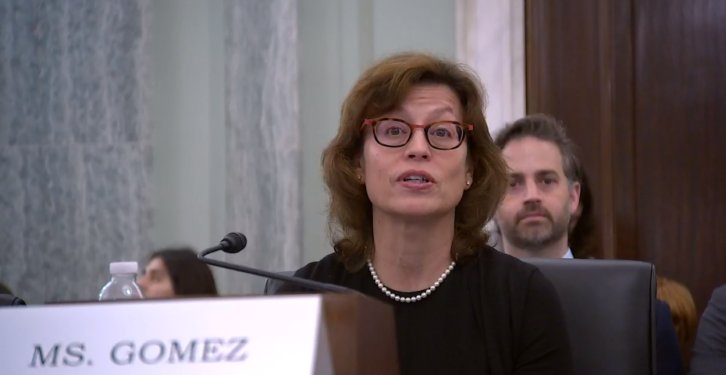
In general, among the senators present, there was a strong, bipartisan push for “independent” nominees who will focus on equity and serving the public’s interest above all else. Texas Sen. Ted Cruz, a Republican, particularly noted that the selected candidate must stand up for “procedural fairness” and taxpayer interests. He expressed disdain for current FCC Chairwoman Jessica Rosenworcel and publicly stated that commission members should solely work to serve the public and “do not work for the chairwoman.”
Overall, during Thursday’s hearing, which lasted two and a half hours, it was hard to judge the level of GOP support or resistance to Gomez’s nomination outside of Tenn. Sen. Marsha Blackbur, who worried that Gomez would find it difficult to juggle her various obligations, particularly the upcoming World Radiocommunications Conference this fall.
“You have been in preparation since January to be the lead in this conference,” Blackburn said during the question segment of the hearing. “I find it difficult to see how you can handle two very demanding jobs at the same time.” Gomez, in turn, responded: “I can assure you that the State Department is doing contingency planning” in the case that she should be confirmed.
World Radiocommunication Conferences (WRC) are held every three to four years, hosted by the International Telecommunication Union. It is the job of WRC to review, and, if necessary, revise the Radio Regulations — the international treaty governing the use of the radio-frequency spectrum and the geostationary-satellite and non-geostationary-satellite orbits.
Other issues of interest discussed during the hearing were that of spectrum allotment, access to broadband and general bipartisan collaboration, especially between the Senate Committee on Commerce, Science and Transportation and the FCC.
